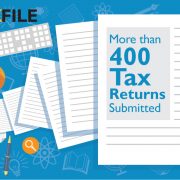Summer Budget 2015 – Key Tax Takeaways
The Summer Budget was announced last week and in this blog post we’ll take a look at only those changes which will affect ordinary taxpayers and SMEs.
In his opening remarks, the Chancellor of the Exchequer, George Osborne, promised:
A Budget … to keep moving us from a low wage, high tax, high welfare economy; to the higher wage, lower tax, lower welfare country.
So, taking each of those goals in turn …
Higher Minimum Wages
With regard to the higher wages promise, Osborne announced that there would be a new National Living Wage of £7.20 per hour from April 2016 for those aged over 25 and over, rising to more than £9 per hour by the year 2020.
Lower Tax
With regard to the lower tax promise, the Personal Allowance (the amount people can earn before paying any tax) will increase – as anticipated – from £10,600 in the financial year 2015-16 to £11,000 in 2016-17. A longer term plan is to increase this still further to £12,500 by 2020. The ultimate ambition is pass a law to make sure that those working 30 hours a week and earning the National Minimum Wage will pay no tax whatsoever, although clearly this will need further clarification in due course.
Dividend tax will also be reformed. Here the existing dividend tax credit (this reduces tax paid on dividends from shares) will be replaced by a new £5,000 tax-free allowance on income from shares from April 2016 and this will be available to all taxpayers. To offset the cost of this to the Exchequer, those with more significant dividend income will see an increase in the tax rate they pay.
Inheritance tax will also be subject to changes from 2017-18. The idea is to allow individuals to each have a ‘family home allowance’ which they can pass on to their children or grandchildren, tax-free, when they die. This allowance will be added to the existing Inheritance Tax threshold currently set at £325k and will potentially allow property up to the value of £1m to be passed down from 2020-21 (see table below). For those with estates valued over £2m the allowance will be gradually withdrawn.
This is how the effective Inheritance Tax thresholds will look in 2020-21:

The higher (40%) rate tax threshold will increase from £42,385 to £43,000 in 2016-17, offering a small tax saving to those affected.
We can see with all of this that, in theory at least, the significantly better off will pay a greater share of income, dividend and inheritance tax while allowing those with modest incomes, shares and estates to pay a lower amount. However many would argue that this is with the exception of some currently enjoying significant welfare benefits because that area is, in part, under fire.
A Lower Welfare Economy
In respect of the promise to make it a ‘lower welfare country’ the Chancellor added further reforms to the welfare system, aimed at making it fairer for taxpayers who pay for it, “whilst still protecting the vulnerable” he says. The changes announced include:
- a 1% annual reduction in social housing rent for 4 years;
- the need for those tenants earning over £40k in London and £30k elsewhere to pay rent closer to the ‘market rate’;
- 18-21 year olds who are on Universal Credit will have to go on a work placement, learn work-based skills or apply for an apprenticeship (or similar) within 6 months of starting their claim;
- Child Tax Credit will support only 2 children maximum for those children born from April 2017;
- there will be a reduction of the ‘household benefit cap’ to £20k (£23k in London) per annum;
- With the exception of Maternity Allowance, maternity/paternity pay and sick pay, ‘working-age benefits’ will be frozen from 2016-2017 for a period of four years. This will include Local Housing Allowance and tax credits.
Tax for Businesses
Corporation Tax will fall to 19% in 2017 and then to 18% in 2020. This is part of an aim to make the UK more competitive.
The Annual Investment Allowance, which allows businesses to immediately offset the full cost of things like equipment and machinery against their tax, will be set at £200k from January 2016. This is the highest level ever set and will allow businesses better cash-flow as well as helping them to cushion the blow from infrastructure investment.
The cost of National Insurance to businesses will decrease from April 2016 when the N.I. Employment Allowance will increase from £2k to £3k per annum. The result is that businesses employing up to 4 staff full time on the National Living Wage will pay no National Insurance whatsoever.
Tax changes for Landlords
Wealthier landlords will see an increase in the tax they need to pay because tax relief on their costs (including mortgage interest) will reduce from 40% (for the wealthiest) to 20% maximum from April 2020. Also landlords’ “wear and tear allowance”, which is currently available to landlords irrespective of whether they have had to replace furnishings etc., will be replaced by a new tax relief which will only be available when furnishings have actually been replaced.
So it’s a mixed bag but, of course, here we have only scratched the surface and the devil will be in the detail.
Other Announcements
Other announcements in the Summer Budget 2015 included:
- Changes to taxation for “Non-dom’s”;
- Changes to Insurance Premium Tax;
- Changes to the charges permitted by claims management companies;
- Changes relating to pension contributions;
- Changes to taxation on the banking sector;
- The formation of 3 million new apprenticeships;
- An increase in the number of free childcare hours;
- Changes to student maintenance grants;
- Reforms to road tax;
- Further clamp-downs on tax avoidance and evasion.
You can view the video of the Chancellor’s Summer Budget speech 2015 above or a full transcript is available here.
If you would like to discuss the tax implications of the Summer Budget with a tax expert, contact us here at Taxfile and we’d be delighted to help. We are tax advisors and accountants and can help to sort out anything from complex tax issues … company accounts … help with CIS tax for sub-contractors … tax computations for landlords and taxi drivers … to correctly computing and filling out tax returns on behalf of our clients. Call us on 0208 761 8000 for further details.









